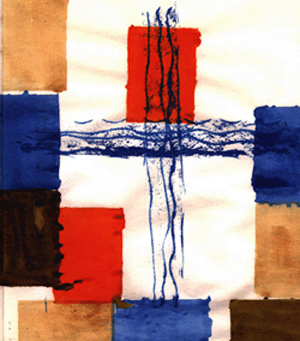| 11:40-12:30 |
|
| |
|
| 12:30- |
KOREAN BUFFET LUNCH |
|
|
Abstracts:
|
|
| |
|
| Don Baker |
|
|
|
|
Christianity brought a new concept of religion, and of church-state
relations, to Korea. Christianity refused to accept the traditional subordinate
role of religions in East Asia, first by refusing to honor state control
over ritual and secondly to privilege the moral demands of the state over
its own moral code. This led to a major contribution Christianity has made
to contemporary Korean political culture: the notion of religious freedom,
that there are limits to the authority the state has over its subjects.
Christianity, therefore, has been major factor in the rise of civil society
in South Korea. |
|
|
| Chai-sik Chung |
|
| |
|
|
The question of indigenization, contextualization, inculturation, and
the various ways in which the message of the gospel is clothed in local
cultural forms has been an important issue. The gospel is always culturally
conditioned. Yet, the problem of how Christianity can contribute toward
the transformation and development of the resources found in local cultures
is just as important. This paper attempts to find a way out of the moral
directionlessness of Korean society today by reflecting upon the meaning
of the transcendent character of Christianity as a force for cultural transformation
and integration. |
|
Don Baker is Canada-Korea Business Council Chair and Associate
Professor in the Department of Asian Studies of the University of British
Columbia. He has published several articles on religion and science during
the Choson dynasty. He is especially interested in the confrontation
between Confucianism and Catholicism in the 18th and 19th centuries.
He is a co-editor of the Sourcebook of Korean Civilization published
by the Columbia University Press (1996). e-mail |
| |
|
|
Chai-sik Chung, a social ethicist and sociologist of religion,
is the Walter G. Muelder Professor of Social Ethics at Boston University
School of Theology. Dr. Chung holds a B.D. degree from Harvard University
Divinity School and a Ph.D. in Social Ethics and Sociology of Religion
from Boston University. His research interest is in social ethical
problems arising from East Asia’s modernization and global change. Among
his widely published writings in both Korean and English are Religion
and Social Change (Yonsei University Press,1982); Modern Science
and Ethics (co-authored, Minumsa, 1988); Consciousness and History:
Korean Cultural Tradition and Social Change (Ilchogak, 1991); A
Korean Confucian Encounter with the Modern World: Yi Hang-no and the West
(Institute of East Asian Studies, University of Calif., Berkeley, 1995).
e-mail |
| |
|
|
R. Richard Grinker received a Ph.D. from Harvard University.
He is Associate Professor of Anthropology, International Affairs, and Human
Sciences, and a co-convener of the HMS Colloquium in the Korean Humanities
at GW. A specialist in studies of ethnicity and nationalism, he has
published books and articles on ethnic conflict in central Africa, the
intellectual history of African Studies, and north-south Korean relations.
His latest book is In the Arms of Africa: The Life of Colin M. Turnbull
(St. Martin's Press, 2000). e-mail, web-site |
| |
|
|
Young-Key Kim-Renaud received her Ph.D. from the University
of Hawai'i. She is Professor of Korean Language and Culture and International
Affairs, and is the initiator and co-convener of the Hahn Moo-Sook Colloquium
series in the Korean Humanities at GW. She is a past President of
the International Circle of Korean Linguistics. She is currently serving
as the Korea Book Review Editor for the Journal of Asian Studies.
A theoretical linguist with broad interest in Asian humanities and Asian
affairs, Kim-Renaud has published five books and a number of articles in
the area of Korean phonology, writing system, honorifics, and general Korean
cultural history. e-mail, web-site,
profile |
| |
|
|
Kirk W. Larsen is Assistant Professor of History at The George
Washington University and the holder of the newly created endowed
chair in Korean Studies at GW. He received his M.A. in East Asian
regional studies and his Ph.D. in History from Harvard University, where
he was editor-in-chief of the 1997 edition of Papers on Chinese History.
His current research interests include imperialism in late nineteenth-century
Korea, the Overseas Chinese in Korea, and industrialization in East Asia.
e-mail,
web-site |
| |
|
|
Bonnie Oh received her Ph.D. at the University of Chicago.
Dr. Oh is currently a Distinguished Professor of Korean Studies at the
School of Foreign Service of Georgetown University, where she serves as
Coordinator of Korean Studies and Georgetown Korea Lecture Series and others.
She is co-editor of East Meets West, Jesuits in China, 1582-1773
(1988), and has contributed to the volumes: Japan Examined: Perspectives
on Modern Japanese History, and The Chinese and Japanese: Essays
in Political and Cultural Interaction. e-mail,
web-site |
| |
|
|
Harry Yeide attended Williams College where he received his
undergraduate degree and then earned his B.D. from the Union Theological
Seminary (NYC). He obtained his Ph.D. from Harvard University. His areas
of interest include the sociology and philosophy of religion, ethics, and
peace studies. He served as Assistant Dean for the Columbian School for
more than 10 years then followed that position with over 10 years as chair
of the Religion Department. He has played a major role in the establishment
of various interdisciplinary study programs including most recently in
the fields of bio-ethics and peace studies. He has written a number of
articles on religion and ethics and has recently published a book on classical
Pietism. e-mail, web-site. |

